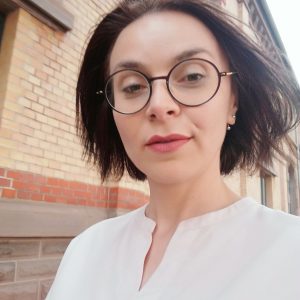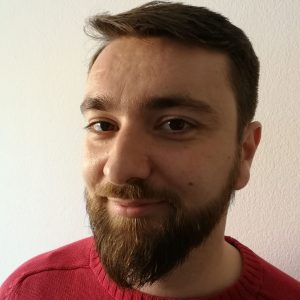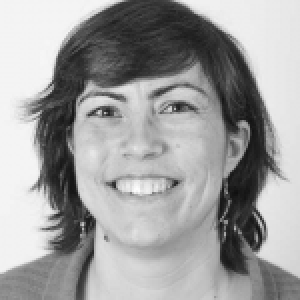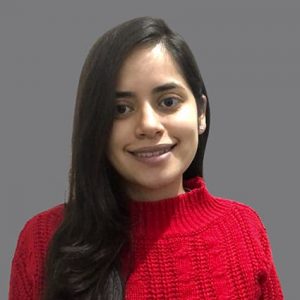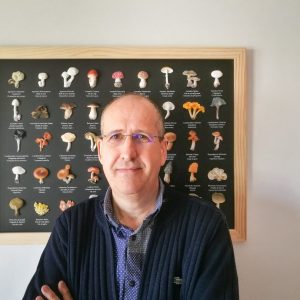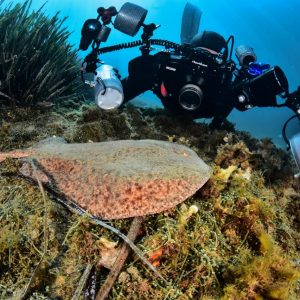Of the Cos4Cloud members participate in co-design and testing activities
Of the Cos4Cloud members participate in co-design activities
Of the Cos4Cloud members participate in testing activities
Cos4Cloud's community
The Cos4Cloud community is interdisciplinary and diverse. Some of our members are scientists, naturalists, managers of a citizen observatory, data scientists, developers, designers, coders, makers, general public, among other profiles. Get to know some of them!
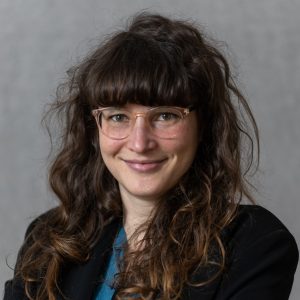
Chiara Cardelli
Involvement facilitator, community organizer, scientist
Chiara has a background in chemistry and physics but after her PhD chose to combine her two passions – for societal issues and for science – outside of the confinements of the lab. She now works on connecting science with society – and knowledge with impact – in participative and community-based research, citizen science for society, science policy, open innovation, and science communication.
She is interested in particularly in climate & health/planetary health, water quality and sanitation and environmental justice. In her free time, she co-organises a network of science communicators and engagement facilitators in Austria and engages in some activism around gender and inclusion issues in academia.
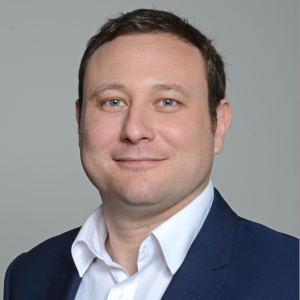
Enrique Castro Sánchez
Associate Professor in Infection Prevention at University of West London
Enrique Castro-Sánchez is an Associate Professor in Infection Prevention at University of West London; and Honorary Lecturer at the HPRU in Healthcare-Associated Infection and Antimicrobial Resistance at Imperial College London.
He has a PhD in Nursing by University of Alicante (Spain), and MSc in Public Health by the London School of Hygiene and Tropical Medicine. Enrique is a Florence Nightingale Foundation Scholar, associate editor of BMC Public Health, BMC Health Services Research, and JAC-AMR journals.

Lina Sitz
Reseacher & Freelancer
Lina Sitz has a PhD in Physics and worked in Earth System Physics for ten years studying ocean’s dynamics and its effects on the climate and the environment. Her current research interests include open science, citizen science, research support services, and data management.
She currently works as a freelancer and since 2021 is bringing assistance with the archival of data and code for the figures from all the Intergovernmental Panel for Climate Change (IPCC) WGI Sixth Assessment Report components (i.e., 13 chapters, the Summary for the Policymakers and Technical Summary), applying the best recommendations for services in a FAIR Data ecosystem.
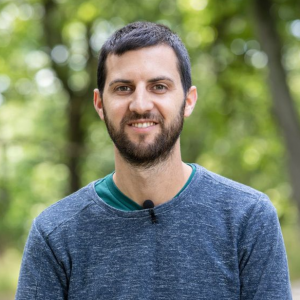
Ferran Sayol
Reseacher at CREAF and member of FELIS-ICHN
Ferran is an ecologist interested in ecology and evolution, particularly in factors regulating animal diversity patterns. He presented his PhD at the Autonomous University of Barcelona (UAB) in 2018, focusing on the causes and consequences of brain size evolution in birds. After his PhD, he has led various projects as a postdoctoral researcher at the University of Gothenburg (2018-2020) and Marie-Curie Postdoctoral fellow at University College London (2020-2022).
Currently, he is a “Beatriu de Pinós” Postdoctoral fellow at CREAF and a member of FELIS-ICHN, with whom he has developed a citizen science initiative to survey carnivore communities in Catalonia.
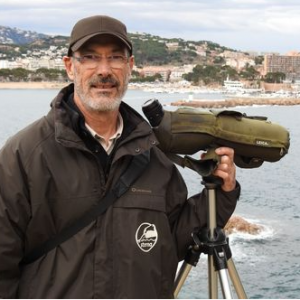
Carlos Álvarez-Cros
Biologist
Carlos is a biologist; he has spent his entire professional life (39 years) in the food industry at Noel Alimentaria, where he has been Technical Manager, Quality Manager, General Production Coordinator and, finally, Purchasing Manager.
Moreover, ornithology has been his greatest hobby. He is a founding member of the Grup de Natura Sterna (1990) and the Comité Avifaunístic Ampurdanés (CAE) (2005), in both of which he has published and participated in the publication of several documents related to the ornithofauna of the Empordà, among other things.
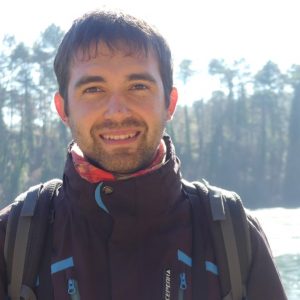
Marc Vilella
Field technician at the Natural Sciences Museum of Granollers and Catalan Institution of Natural History (ICHN) member.
Marc is focused on studying the behaviour of terrestrial mesocarnivores and how they are influenced by their prey, i.e., small rodents. He mainly works with sampling methodologies based on camera trapping and small mammal live traps, which he used to obtain data for his MSc degree thesis on biodiversity management at the Autonomous University of Barcelona.
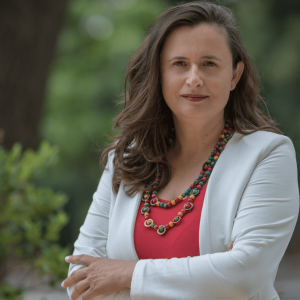
Maria Philippi
Head of Informatics & Digital Education in Doukas School
Maria started her career twenty-five years ago as a communication & media specialist while studying Business Administration, in which she also obtained her Master’s Degree. Her innovative mindset, combined with her passion for communication, culture & education, led her to further studies in Communication & Media and then to a specialization in ICT in Education with a second Master’s Degree. She works as a researcher in Hybrid Spaces & Learning, Augmented Reality & AI.
Maria also founded the innovative ecoktima-hybrid learning space in 2011 while being a member of the Applied Communication Institution of the National University of Athens. Her vision is to transform the physical space into a Sustainable Hybrid World.

Georgia Lascaris
Software engineer and CRP, ERP system analyst from 1995, Computer Science, STEM and ICT teacher at secondary and primary schools in Athens since 2004
Georgia graduated from the Athens University of Economics and Business, Department of Informatics, with a degree in Sciences&Technologies. Scientix Ambassador, STEM(A)M IT STEM Career Advisers Network member, Eu code Leading Teacher, Stempedia certified Artificial Intelligence educator, Awarded winner and QualityNetFoundation SDG Ambassador.

Varvara Petridou
2nd Directorate of Secondary Education of Athens as Environmental Education Coordinator
Varvara has 31 years of experience in Public Secondary Education, and for the last ten years, she has worked in the 2nd Directorate of Secondary Education of Athens as Environmental Education Coordinator.
She holds a degree in Educational Technologist Mechanical Engineering, also a degree in Geology & an Interdepartmental Postgraduate Oceanography Diploma. She speaks English and French and has a Certification of Skills and Knowledge in Information and Communication Technologies (ICT A).
Moreover, she has participated in producing educational material for Environmental Education Centers, for NGOs & in the Cos4Cloud Project. She has also organized and implemented 140 Training Seminars, coordinated 66 training workshops and presentations, and is an educator in two programmes of the Institute of Education Policy, among many other things.
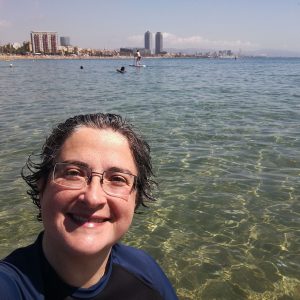
Núria González
One of the most active participants in the BioMARató 2022
Nùria is a sea & marine biodiversity lover and has experience in travel agencies.

Peggy Karpouzou
Associate Professor of Theory of Literature at the Faculty of Philology of the National and Kapodistrian University of Athens in Greece
She received her BA degree in Linguistics from the National
and the Kapodistrian University of Athens. She holds a DEA and a PhD in Theory of Literature from Université Sorbonne Nouvelle-Paris III. She has taught courses on Literary Theory, European Literature and Modern Greek Literature at several universities. She is the author and editor of several works.
Her research interests focus on Literary Theories, Posthumanities, Environmental Humanities and Cultural Criticism in Greek, French, and Anglophone Literature of the 19th-21st centuries.
She is a member of international Editorial Boards, scientific Associations and Networks in her research fields, and a current member of the Education Team of NASA, VINE-Glenn Research Center. She is Editor in Chief at the Journal of Ecohumanism and Series Editor of the book series “Posthumanities and Citizenship Futures” at Rowman & Littlefield, “Environmental Humanities” at TPLondon (U.K.), and “Brill Research Perspectives in Critical Theory
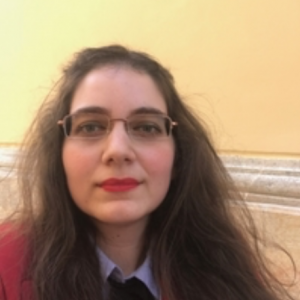
Nikoleta Zampaki
Dr. Nikoleta Zampaki, Post-doc Researcher at the Faculty of Philology of the National and Kapodistrian University of Athens in Greece
Nikoleta was an Instructor at the Utah University in the U.S.A., International Student and Fellow at MIT in the U.S.A., Harvard Extension School, Stanford University, Oxford University, Universität Tübingen in Germany, Eötvös Loránd University in Hungary, among others. Her disciplines are Environmental Humanities, Posthumanities, Digital Humanities, and Comparative Literature.
She is an editor and
reviewer at many journals overseas, Associate and Managing Editor at the Journal of Ecohumanism, and a current member of the Education Team of NASA, V.I.N.E.-Glenn Research Center. She has also participated in many conferences and she is a multilingual student working in English, French, Romanian, Russian, Chinese, Hungarian, Maori, and Turkish.
She is also co-editor with Professor Peggy Karpouzou of the book series “Posthumanities and Citizenship Futures” at Rowman & Littlefield
and “Environmental Humanities” at TPLondon based in the U.K.

Adel Sarvary
Business Analyst, Digital Collaboration Consultant, independent researcher & activist
Adel holds Master’s degrees in agricultural economics and in transformation design, and she is an alumna of FabLab BCN & Open Life Science. Apart from her corporate work as an IT Business Analyst and a Digital Collaboration Technical Consultant, she is a researcher & activist focusing on urban regeneration via landscape socialization and collective intelligence. She is also a founding member of Associació Replantem, and a mentor at Open Hardware Makers.

